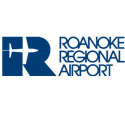 Roanoke Regional Airport officials say they are communicating regularly with airlines in hopes of addressing common passenger concerns on price and service. The Airport commissioned a study of public perceptions, one that says while most people spoke well of the airport, airline services and fares are among the most frequent complaints. WFIR’s Evan Jones has the story.
Roanoke Regional Airport officials say they are communicating regularly with airlines in hopes of addressing common passenger concerns on price and service. The Airport commissioned a study of public perceptions, one that says while most people spoke well of the airport, airline services and fares are among the most frequent complaints. WFIR’s Evan Jones has the story.
(Continue reading for the full airport news release.)
Here is the full Roanoke Regional Airport news release:
Taking the Region to New Heights:
Roanoke Regional Airport Commission Initiative Seeks to Engage Community
Research shows the region views ROA favorably, but misperceptions exist about airport operations
Roanoke, Va. (October 4, 2012) – The Roanoke Regional Airport Commission has released findings from 2011‐2012 research, conducted by Roanoke, Va.‐based agency Access Advertising & Public Relations, undertaken to better understand public perception of the airport and its service to the region.
Research findings demonstrate that in Southwest Virginia, communities overwhelmingly view Roanoke Regional Airport (ROA) as an asset and feel strongly that it is important to the future of their communities. However, there continues to be a definite desire for more flight and fare options.
Research consisted of one‐on‐one conversations with more than 50 regional business leaders, and a survey of a random sampling of 807 people throughout the airport’s service area.
According to Jacqueline Shuck, executive director for the Airport Commission, the research also revealed that the Airport Commission could do more to engage directly with its constituents and educate them about key differences between airport and airline business decisions. In order to do exactly that, the Commission is launching its Taking the Region to New Heights marketing and awareness initiative, which will focus heavily on community engagement and outreach.
“We weren’t sure what this research would reveal,” says Shuck. “What we learned is that our airport is viewed as a critical economic asset, but also that there are some common misperceptions about how we operate and about the limits of our control. Airlines, not airports, make decisions about flight costs and availability; however, it is a fundamental obligation of airport management to advocate for our region with our airline partners. ”
Some of the significant 2011‐2012 research findings from survey participants include the following:
• More than 91 percent listed the airport’s convenient location as their reason for selecting ROA
for air travel.
• Sixty‐seven percent of respondents indicated that when they choose to use other airports, they
do so because of cost.
• When rating ROA overall, more than 95 percent of respondents rated the airport as average to
excellent.
• The majority of respondents indicated that individual airport services such as transportation,
parking, and technology at ROA are average or above; concession services were rated the lowest
in satisfaction, but the majority of respondents still rated them as being average or above.
The findings are consistent with those from a 2011‐2012 national poll of registered voters commissioned by the Airport Council International‐North America (ACI‐NA). ROA local observations closely mirrored national findings, which found that cost concerns account for nearly one‐third of frustrations expressed by passengers, and concerns about reliability account for nearly one‐fifth of frustrations. The misperceptions related to airport responsibility continued at the national level, as between 20 percent and 47 percent of respondents nationally placed blame on airports for airline and vendor‐related issues, such as lack of flight options, cancelled or delayed flights, lost or mishandled baggage, long lines at security checkpoints and being stuck on the tarmac.
“Knowing that the frustrations and misperceptions that exist locally are felt on a national level helps put our own challenges in perspective. However, and most importantly, we recognize that we can do a better job of communicating the airport’s role as a driver of economic development and the Commission’s role as an advocate for the needs of our travelers, as well as our commitment to this region and pursuing opportunities for positive change and growth,” adds Shuck.
The Taking the Region to New Heights campaign, also created by Access and set to launch in early 2013, will emphasize direct communication with the airport’s key audiences, both business and consumer. Messaging will emphasize the airport’s advocacy for the region to the airlines and its economic contributions of nearly $225 billion annually, and will also promote and encourage an ongoing dialogue with constituents.
The campaign comes at a time when ROA is investing nearly $4.1 million in a multiphase renovation project, which will address many of the needed improvements identified by survey participant comments, including enhancing accessibility and the in‐airport experience, and ultimately improving concessions.
“Needless to say, moving forward, activities undertaken by the Roanoke Regional Airport Commission will be much more visible through advertising, community presentations and outreach, social media and much more,” concludes Shuck.
The Roanoke Regional Airport is the primary air carrier airport for southwest Virginia. ROA moves over 625,000 passengers per year via four airlines with nonstop service to nine cities and with one‐stop service to over 500 cities worldwide







